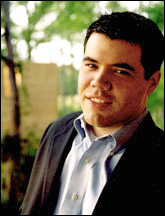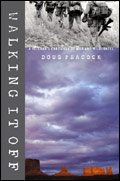religion and spirituality
-
A virtual walking tour of Columbia, Miss., with Charlotte Keys of Jesus People Against Pollution
In 1977, a factory in Columbia, Miss., that had been manufacturing Agent Orange was rocked by an explosion. The owner, Reichhold Chemical Inc., shuttered the facility and abandoned or buried thousands of barrels of toxic waste near the water supply of the predominantly poor, African-American neighborhood where it had operated; flooding and leaks followed. In […]
-
Eilon Schwartz, founder of The Heschel Center, answers questions
Eilon Schwartz. What work do you do? I’m the founder and executive director of The Heschel Center, an environmental NGO in Israel. I am also an academic, teaching at the Hebrew University of Jerusalem. What does your organization do? Only in the last decade has environmentalism gotten on the map in Israel. For years, “The […]
-
Roman Catholic church in the UK teaches that Bible can be factually inaccurate
Here's an interesting development, from the U.K. Times Online:
The hierarchy of the Roman Catholic Church [in England, Scotland, and Wales] has published a teaching document instructing the faithful that some parts of the Bible are not actually true.
This includes the first 11 chapters of Genesis, wherein the earth and humankind are created in six days. It's a rebuttal to strict creationism.
Sometimes I have a sneaking suspicion that this is still news to some people: There are lots of different Christians, and they believe lots of different things. So in a sense, the publication of this teaching document doesn't really mean anything -- I'm pretty sure we're all going to keep on believing what we're believing. But it seems significant to me, and potentially to the environmental community, since, as the article points out, the Church has historically condemned those who don't take the Bible as the literal word of God.
Anyway, I just thought that was interesting (as did Matthew Wheeland at Alternet, who beat me to the punch.)
-
Wise-use movement gaining political strength from fundamentalist Christians
Or so argues a new book by Stephenie Hendricks -- Divine Destruction: Wise Use, Dominion Theology, and the Making of American Environmental Policy, excerpted in the latest Seattle Weekly.
Nut 'graph from the excerpt:
[T]he widespread acceptance of anti-environmental thinking in the guise of Wise Use is made more troubling in that there are increasingly close ties between those who subscribe to the ideas of Wise Use and members of fundamentalist Christian churches and organizations. The Wise Use movement's influence over religious conservatives thus mirrors the traditional relationship between religious and political conservatives in that Wise Use advocates are increasingly adapting their own agenda to include the concerns of religious voters. In so doing, they have gained an army of God to promote their own agenda.
-
Dateline NBC explores that question
Here at Grist, we like to keep you on your toes. On the one hand, we tell you that the Christian Right is swaying politicians and threatening the environment. On the other, we show that some of the evangelical leadership is urging its members to adopt eco-friendly living habits and exhorting the government to lighten America's environmental footprint.
For those of you who don't have anything better to do on a Friday night, you have an opportunity for a different perspective. Dateline NBC will be airing "In God They Trust," in which Tom Brokaw "explores why so many Americans are turning to this expression of faith, and asks whether or not some Evangelicals are going too far."
I doubt they will be discussing the environment, but one can
prayhope. -
Can 30 million evangelicals be a bad thing?
"Environmentalism and the religious worldview" is in the top ten Gristmill posts ranked by the number of comments. Apparently combining these two issues strikes a chord, or at least gets you all riled up.
So I'm wondering what y'all think of the Grist interview with Richard Cizik. Regardless of your views on religion, Richard can reach out to over 30 million people -- and he wants them to fight global warming.
And if if that isn't enough scripture for you, the Seattle Channel is streaming "Whose Planet Is It, Anyway?," the Foolproof event moderated by Grist's own Chip Giller where Richard and others discuss the future of the environmental movement. (You might want to make some popcorn for this one.)
-
An interview with green evangelical leader Richard Cizik
Polluters will have to answer to God, not just government, according to Richard Cizik. Vice president of governmental affairs for the National Association of Evangelicals, Cizik is a pro-Bush Bible-brandishing reverend zealously opposed to abortion, gay marriage, and embryonic stem-cell research. He is also on a mission to convert tens of millions of Americans to […]
-
An interview with Chris Mooney, author of The Republican War on Science
Chris Mooney. Photo: Perseus Books. For some five years, Chris Mooney has been writing about the delicate overlap of science and public policy. As a correspondent for The American Prospect and Seed, a blogger, and a freelance journalist, he’s carved out what you might think would be a modest, out-of-the-way niche of political punditry. Turns […]
-
Walking It Off, Doug Peacock’s memoir, separates the man from the myth
Walking It Off by Doug Peacock, Ewu Press, 208 pgs., 2005. Think you know Doug Peacock? Think again. He was the inspiration for George Washington Hayduke, the hard-charging, Vietnam-scarred protagonist of Edward Abbey’s classic environmental novel The Monkey Wrench Gang. But there’s more to the Peacock story than just trashing bulldozers and causing trouble — […]

